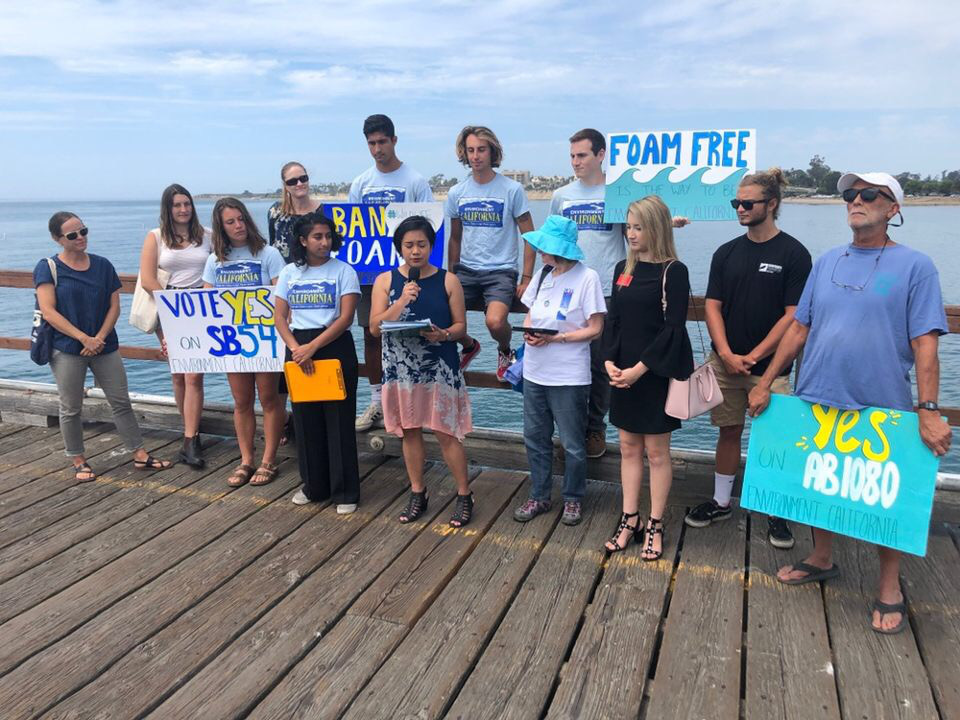Activists Join to Ban Single-Use Plastics in California
New Proposed Laws Will 'Attack the Trash Crisis at Both Ends'

Banning plastic straws, plastic bags, and Styrofoam was just the beginning for the City of Santa Barbara. Now the goal of environmental activists and politicians is to move the entire state away from single-use plastic products. Late Thursday morning on Goleta Pier, more than six groups came together to support Senate Bill 54 and Assembly Bill 1080, which together “attack the trash crisis at both ends.” The measures, also known as the California Circular Economy and Plastic Pollution Reduction Act, ultimately aim to tamp down waste generation by three-quarters in little more than 10 years by making all single-use packaging in the state recyclable or compostable.
As progressive and eco-friendly as Santa Barbara County is, Sithara Menon, statewide vice chair for CALPIRG (California Public Interest Research Group), explained that activists get some pushback when canvassing door-to-door and in community centers. Residents simply aren’t aware of the alternatives to plastics, she said, but if you pay attention, alternatives are already all over the place.
“For surfers, the ocean keeps us out of trouble,” said Ken Palley of Surfrider’s Santa Barbara Chapter. “It is a crime and a sin to pollute it, and it is all of our responsibility to keep the ocean free of plastics and all forms of pollution,” Palley said. It also directly affects human health, observed Shawn Mallen of Isla Vista Surfrider. Discarded and broken-down plastic waste can compound dirty water sent downstream after rains by providing a vehicle for bacteria, he said.
Proponents hope that new legislative requirements to cut down on plastic trash will lead to labeling requirements, incentives for in-state manufacturing to use in-state recycled materials, and economic mechanisms to reduce single-use plastic distribution and promote alternatives. And California, with the fifth-largest economy in the world, said Penny Owens of S.B. Channelkeeper, makes decisions that often ripple beyond state borders, setting a precedent for other states and nations.
As the event on the pier wound down, local diver Hunter Godfrey walked by and inquired about the purpose of the meeting and speeches. After hearing that the groups were there to publicize their efforts to combat single-use plastics, without prompting, Godfrey listed some of the junk he had found during his many dives below and around the Goleta Pier. The list included old phones, a drone, a transformer toy, suture pliers, at least five golf balls per dive, and plenty of fishing line. And these are only the items he can name. He also mentioned coming by a lot of clear microplastics, which aren’t nearly as easy to nab and add to his collection of anthropological ocean artifacts.



